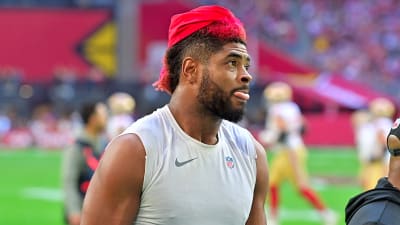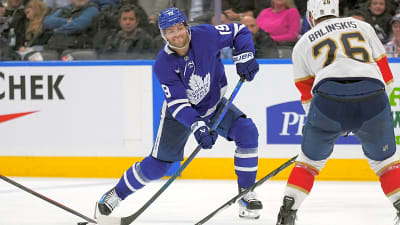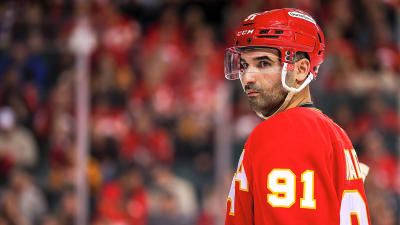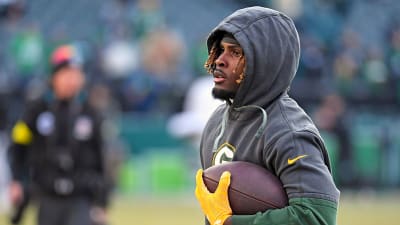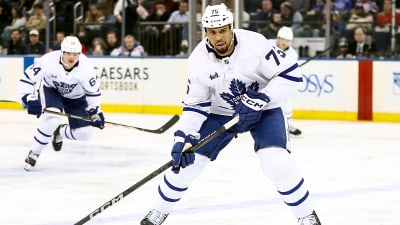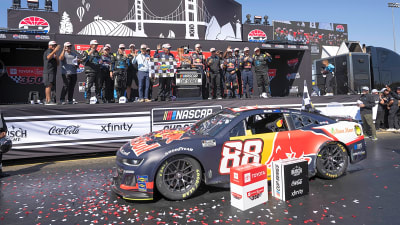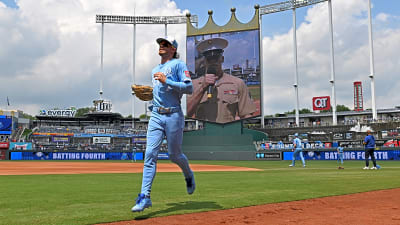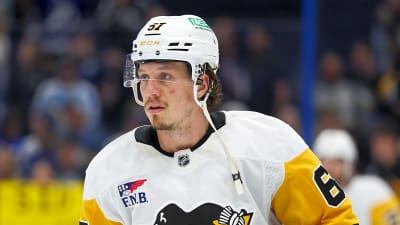There are two types of mariners in this world: Those who force their children into the family business and those who give them a choice, but implore them to do anything but. Something of a philosopher king, Babacar Thiaw’s father was in the latter camp.
Still, the young Thiaw was no sooner walking than he was swimming and playing in the surf at the emphatic but measured encouragement of his father.
“For him, of course his legacy is very important, but also, the world moves,” Babacar says of his father. "And he saw that. I didn't see that, but he was telling me ‘You need to go to school, you need to learn, and you need to have your degrees so that tomorrow you can satisfy your own needs.’ He was realizing—and we still talk about it—that there are less and less fish in the ocean, and people are doing just whatever they want and stuff like that… He used to tell me, for example, that we used to have banks of sand that came with the currents and covered all the rocks. And right now we have construction, buildings all around, and people move the rocks and stuff. It changed the ecosystem a lot.”
Despite these deleterious aspects of “progress,” Babacar’s father, today 68, continues fishing to this day and has not once failed to put fish on the table for the family. “He has this crazy luck,” the proud son says with reverence, “I cannot remember a day he didn’t come back with fish. Lobster, grouper, snapper, all types of fish.”
Babacar, or “Babs” as he’s known in his native enclave of Plage du Virage, is approaching 40 but hardly looks a day over 20. He grew up in post-Endless Summer coastal Dakar’s fishing community of Yoff, a stone’s skip across his reef break from Ngor Island where Robert August and Mike Hynson caught their first waves on the continent. Bruce and the boys left their mark, and Senegal took to surfing in a big way after their visit, and Thiaw had his sights on the sport early on. Initially without funds for a surfboard, surfing for him meant bodysurfing and bodyboarding atop anything that would do. He was in the water any chance he could get, or at the very least beside it, playing soccer on the beach.
“And then we started standing up on the board,” Thiaw tells me with deep reverence over a video call from Copacabana Surf Village, his restaurant/surf club/family compound, distinguishing it from the relative folly of bodyboarding and soccer. That's literally how I started,” he says, essentially describing a crude version of a Hawaiian alaia. “In the village, we didn't call it ‘surfing.’ There is a name in Wolof, and it makes me smile because it reminds me of a lot of memories. We call it ‘sarane,’ and ‘magui sarane’ means, like, ‘I’m going to slide.’ Literally, it means ‘that’s the fun story we are playing.’ It's just like you get on the board and you slide. That's literally how I started surfing.”
When Thiaw was about 12 or 13, a travelling Spanish surfer spent a month or so in Yoff, where he became known along the beach and eventually ingratiated himself to the locals—particularly Mr. Thiaw. The visiting surfer soon ran out of money and began asking around for a way to stay around a little longer. Without hesitation, Mr. Thiaw offered up a shack on the family’s waterfront property, which he had been fortunate and wise enough to purchase quite a few years prior.
When it came time to part, the Spanish surfer expressed his gratitude to the family by bequeathing his 6’2” thruster unto the young Babacar—it was his first surfboard. “I’m going to be honest,” he says, recalling his first day on a modern shortboard with fins. “It was challenging for me. It was like, how could I find some balance on my feet? But I got it maybe a week later,” he tells me through a smile of self-satisfaction as if it happened yesterday, adding that there were no instructors around and he had no choice but to make his own way in surfing. “It was quick because when you're young,” he says, tempering himself. “Your body is quite flexible to adapt to something new that you're learning.” If only we could hang onto that for life.
Somewhat incongruously, this was around the same time that Thiaw began taking to his schoolwork with ambition. From then on, surfing took a back seat: “So I was only surfing or going to the beach during the weekend and that was literally up until I got my baccalaureate… And so as soon as I graduated, I was like, this is my call. I love surfing. I've been surfing since I was six years old. This is what I want to do.”
“After I graduated, I realized that every time I was out there surfing, we were always surrounded by trash, plastic bottles, single-use plastic bags. And I was one of the only locals who was out there and most of the other people, they were foreigners.”
“And it brought to mind, ‘Babs, you live here and love this place and don't want to keep surfing in this kind of environment.’ So what can I do at my level in order to make this thing happen? People need to be more educated about putting their trash—dumping it—just on the beach or on the street or wherever they dump it. And it ends up in the ocean. So I kept having those sorts of thoughts and on and on and I started talking about it around me with people that I met at the restaurant and my family. I talked about it with my dad and I was like, ‘Dad, I really, really want to start a project at Copa Cabana that will open people's eyes about the pollution that we are creating in Senegal and how it is impacting us.’”
PART II
Fresh out of school In 2017, Babacar took to his father’s property, which was waterfront but consisted of little more than a shack, but front and center on Plage du Virage, smack dab between right-hand and left-hand reef breaks. He expanded the restaurant, built out a surf club, and in the process also created something of a community center.
Around this time, the Thiaws suffered an unthinkable if familiar tragedy to any family of fisher folk. Babacar’s brother, who had chosen the life of a fisherman, disappeared off the transom of a small fishing boat without a trace. “That was one of the hardest moments of my life,” he said, though as proactive as a human can be, the somber lesson and affirmation of the life he himself had chosen and was in the process of building wasn’t lost on him in the least.
In 2018, Babs opened up shop, but with a lofty objective in mind: No single-use plastic, and no waste. Having witnessed so much plastic along the shoreline and an increasing shortage of fish for his father, Thiaw knew early on that he wanted to make a change. When the restaurant started taking shape, a solution arose naturally with all the plastic strewn across his front yard (the beach).
Rebuilding his father’s modest concession stand had only been step one. Now, he was using only resealable glass bottles—everything from colas to orange sodas is all delivered in glass and returned to the same bottling facility to be scrubbed and refilled. It is a simplified, streamlined, and far more energy-efficient hardly recycling process than we undertake in the west, where glass is broken, melted, and resold raw. Water is served from 20-liter refillable glass bottles on taps, and utensils and straws are scrubbed with hot water and white vinegar. It’s about as clean-functioning as the restaurant business can get, and it’s catching on: Babs’ restaurant was the first in Senegal; there are now 68 no-waste restaurants across the country.
And that’s to say nothing of the food, which speaks for itself (Copacabana Village has also been featured in the New York Times, Condé Nast Traveler, The Guardian, and, well you get the idea).
As for the father-son dynamic? Babacar and his father are like ships passing in the night. “I'm on the surface and I'm having fun, and he's having fun underneath. So we are crossing paths with a smile and it's all about happiness and he has his things and I have my thing and it's all around, again, the ocean, the water, the fun, the spirituality, the discipline, the humility. Man, what the ocean teaches me, I don't think that l would have been able to learn that in school.”
Visit Copacabana Surf Village’s website to learn more or donate, and follow Babacar Thiaw and Surfrider Senegal.
More must-reads:
- Chiefs sign star offensive lineman to $94 million deal
- Mavericks center Dereck Lively II reportedly undergoes foot surgery
- The 'No. 1 overall MLB Draft picks' quiz
Breaking News
Trending News
Customize Your Newsletter
 +
+
Get the latest news and rumors, customized to your favorite sports and teams. Emailed daily. Always free!
